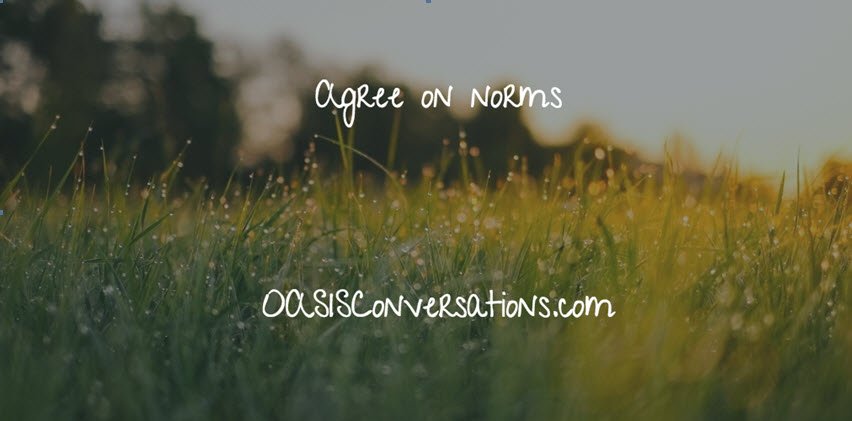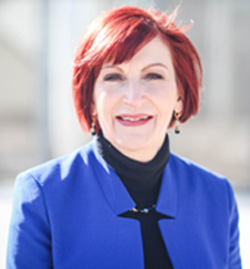[Excerpted from OASIS Conversations: Leading with an Open Mindset to Maximize Your Potential]
You might think it is obvious that people should say hello and there need not be ground rules about how to greet each other and work together. Everyone should know how to behave. Interestingly, when I ask groups of people in various organizations whether they say, “Good morning!” to their colleagues, I hear a range of responses.
In some parts of the world, like the South in the United States, people routinely greet each other in offices, and even strangers are greeted with enthusiasm in shops and on the street as they pass by. In some countries, such as France, office mates greet each other formally. They say, “Bonjour, Monsieur Bonhomme”— using surnames rather than first names— even when they have known each other and worked together for years.
In some offices, people tend to get right to their email; they don’t greet each other and that’s accepted. In a New York company where I worked, most people did not say good morning. In a hospital, a manager greeted people in the morning, and one day, out of curiosity, counted the number who responded. He told me that number was less than 30 percent! Since he is widely considered a friendly and well-liked person, I thought he might be exaggerating unintentionally. However, others verified this lack of responsiveness.
We learn the simple behavior of whether and how to say good morning from our early caregivers, families, and schools. We learn the norms in our workplaces by observing.
For example, when my daughter was quite young, even before age three, I encouraged her to greet the doormen in our condominium in Chicago. Once when I was on a business trip, I called my husband and asked whether he was reminding her to say hello. He was. He had the same expectations of her, even though we had not discussed them. However, I noticed that other parents did not have the same standard for greetings from their children. For example, a mother in New York City told me she did not want to encourage her son to say hello to people. She worried about his safety.
Once a workshop participant said she had moved from a small town where it was the norm to greet each other. One morning, she was on the street, saying, “Hi!” to her neighbors in a large city. A police officer patrolling on a horse said, “Lady, you are going to get in trouble if you say ‘Hi’ to so many people here.” Another person said that no one spoke in the mornings in her home since her mother did not like to interact in the morning. Later, she kept the practice with her own family and in the workplace.
The point is that even for such a simple act as greeting people, most of us learned early from our caregivers and experiences what we consider the “right” behavior. Without thinking, we follow our habitual patterns. While our intentions may be positive, we are often unaware of our conditioned behavior’s impact on others.
In one client organization, at mid-morning every day a senior level executive would walk around a nearby office of people who reported to him. His office was located on a different floor. He typically said very little and, according to him, was just trying to make himself available. Since he did not clarify his intentions, some staff members interpreted his behavior as “checking on them” and became angry at his perceived lack of trust. The manager was shocked when he heard this interpretation. I have also experienced situations where staff members were upset that their manager rarely visited or interacted with them. These people, in contrast to the others, expected a manager to come and inquire about their activities.
 Whether it is frustration that dirty dishes have been left on the counter in the shared work kitchen or a complaint about someone not holding a door open for the person behind him, we each have different expectations for even the simplest behaviors. We are each influenced by what we have learned from our pasts.
Whether it is frustration that dirty dishes have been left on the counter in the shared work kitchen or a complaint about someone not holding a door open for the person behind him, we each have different expectations for even the simplest behaviors. We are each influenced by what we have learned from our pasts.
Open-minded conversations and agreement on norms can make a real difference.

